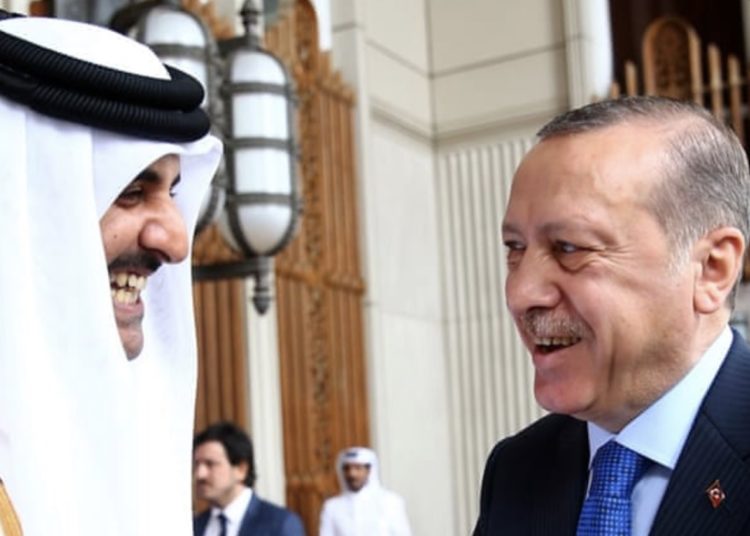Abdullah Bozkurt
Turkey has moved to protect its troops deployed in Qatar from any criminal prosecution by inserting an exception to a judicial assistance agreement that is currently pending approval by Turkish lawmakers.
According to the text of the agreement, a copy of which was obtained by Nordic Monitor, one party’s request for legal assistance may be refused by other side if the offense subject to the request is a purely military offense. Since there are no Qatari troops deployed in Turkey, the agreement in its current form is applicable only to Turkish troops stationed in Qatar. In the event Turkish troops were involved in a crime in Qatar and returned to Turkey, the Erdoğan government can invoke this exception to refuse legal assistance and extradition. The exceptions were inserted in both Articles 11 and 14, which rule out extradition if the offense is deemed to be military, among other grounds.

Briefing lawmakers on the Foreign Affairs Commission in the Turkish parliament on July 4, 2019, Yavuz Selim Kiran, the deputy foreign minister, stated that they value the agreement and expect to see support from members of parliament. Yavuz Yilmaz, deputy director general of the Justice Ministry responsible for foreign relations, noted that legal matters were previously pursued on the principle of reciprocity with Qatar and underlined that with the new agreement, legal problems will be sorted out according to the more robust bilateral agreement, which deals specifically with legal matters.

The 50-article deal, officially titled “Agreement between the Government of the Republic of Turkey and the Government of the State of Qatar on Mutual Legal Assistance in Criminal Matters,” covers criminal matters, extradition, the transfer of sentenced persons and the transfer of criminal proceedings. It covers the service of judicial documents, the search, seizure and delivery of documents and properties constituting evidence, the search, seizure and confiscation of the proceeds of crimes, expert examination, interrogation of accused persons and suspects, the hearing of witnesses and experts, and object and crime scene examination.
Although Article 1 of the agreement states that both countries shall undertake the widest measure of mutual legal assistance in criminal matters, the broad exceptions in the following articles were listed, narrowing the scope of the cooperation. These included inter alia crimes of a military nature and political and thought crimes.

Turkey and Qatar also agreed to not take any dispute to international mechanisms or third parties but to settle any differences that may arise in connection with the implementation or interpretation of the agreement through diplomatic channels.
The agreement is valid for one year and will be extended automatically unless either side notifies the other of its intention to terminate the agreement in writing through diplomatic channels at least six months before the termination. During the negotiations, Turkey wanted no expiration date on the agreement, or at least an extended time period beyond the one year. But the Qatari government wanted to limit it to one year with automatic renewals, citing rules and regulations in the Gulf state.
The deal was signed on November 15, 2017 and will soon be approved in the Turkish parliament. The agreement is missing the names and titles of the officials who actually signed it. Nordic Monitor has learned that it was signed by Abdülhamit Gül, Turkish justice minister, and Qatari Attorney General Ali bin Fetais al-Marri.
The full text of the agreement is posted below:












